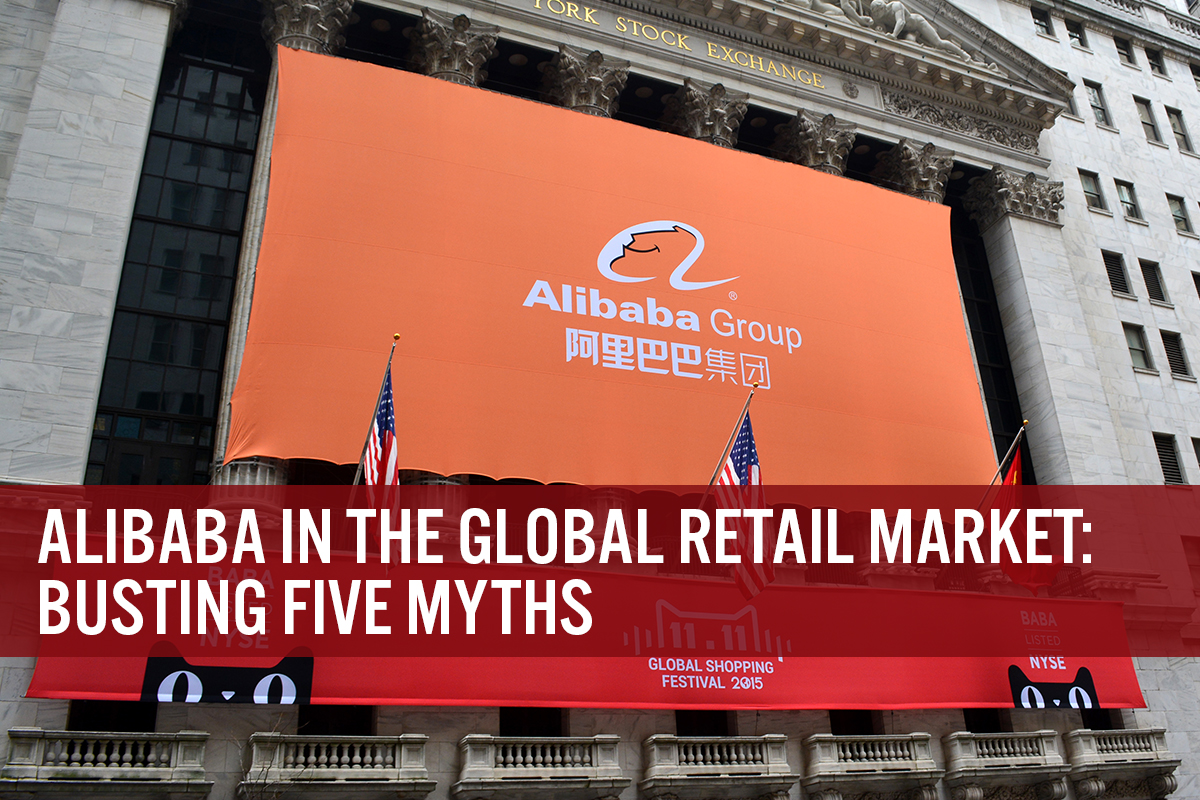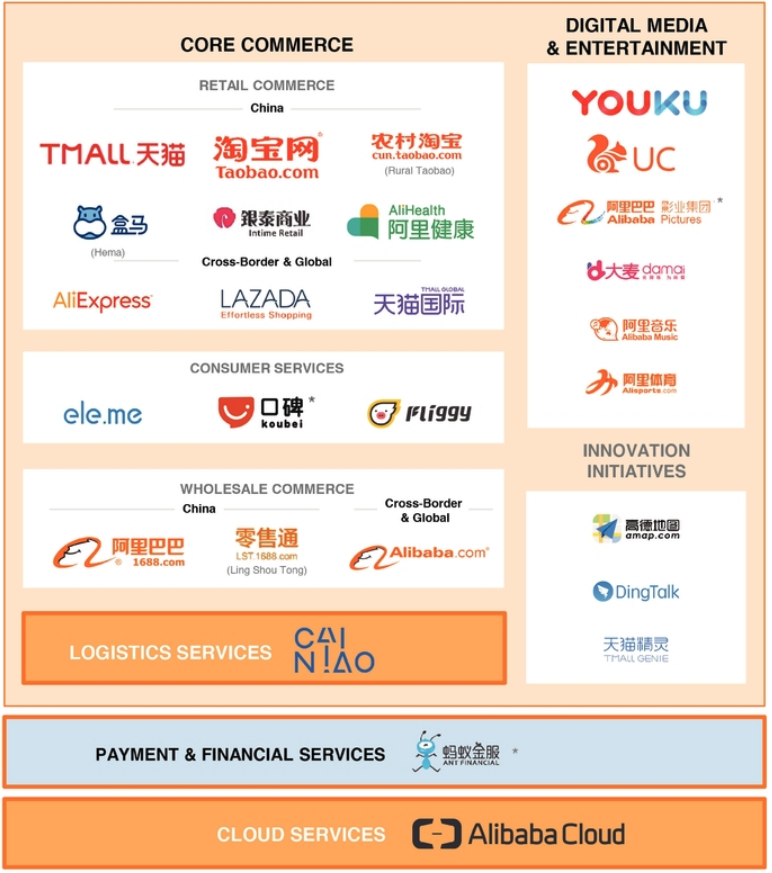
Nitheesh NH
What’s the Story?
E-commerce in China saw strong performance during the Covid-19 crisis, as it pushed more brands and retailers online. The market has since sustained solid growth, with impressive online sales results achieved during the Singles’ Day shopping festival (also termed 11.11 Global Shopping Festival by Alibaba) in November 2020, which saw retail participation in China and around the world. We analyze some of the conceptions associated with online shopping in China through the lens of Alibaba Group, one of China’s largest e-commerce companies. This report discusses the differences between Alibaba and Amazon, as well as the perceptions related to the brands that Alibaba works with and the scope of its business. We also investigate the role of shopping festivals beyond discounts and the relevance of China’s e-commerce market to international brands and retailers.Why It Matters
With Alibaba generating $945 billion in gross merchandise volume (GMV) through its China retail marketplaces in fiscal year 2020 and pioneering “New Retail,” understanding Alibaba is essential to any company looking to sell into China. We unlock five myths related to online retail in China to provide insights into the workings of this e-commerce giant. This myth-busting highlights how Alibaba is set up to support global small and medium enterprises (SMEs) with China market entry and develop technology solutions to optimize the retail ecosystem.Busting Five Myths About Alibaba in the Global Retail Market: In Detail
Myth One: Alibaba Is the Amazon of China There is a common perception that Alibaba is the Amazon of China due to the similarity in their e-commerce growth trajectories. While it is true that both companies offer consumers a wide range of merchandise online, the two companies’ business models have distinct differences:- Amazon.com operates both as a retailer and a marketplace—it sells directly to consumers from its own inventory and through its own distribution centers, and operates as a platform for third-party sellers, which can include retailers. As a marketplace, Amazon not only generates income from third-party sales—through commission and by offering fulfillment and warehousing services to merchants—but also gathers data from these sales. Amazon leverages this data to inform its business strategy, including for its private labels, further competing with third-party sellers. Amazon has been progressively expanding its private-label business; it offers almost 23,000 products as of May 2020.
- Alibaba provides digital platforms that enable buyers and sellers around the world to trade. The company’s platforms operate exclusively as third-party marketplaces, thus, unlike Amazon, there is no competition between Alibaba itself and the merchants that sell on its sites. Furthermore, Alibaba provides data on consumers and sales to third-party retailers so that they may have the insights and analytics to adapt their product offerings to respond to demand, which we discuss later in this report.
- Alibaba.com—A business-to-business (B2B) platform that enables wholesale trade
- Tmall and Taobao—Business-to-consumer (B2C) and consumer-to-consumer (C2C) marketplaces
- Tmall Global—A cross-border e-commerce platform the provides a dynamic ecosystem for both retailers and consumers around the world to sell to the China consumer market
- Consumer services such as online food-delivery service platform Ele.me
- Cross-border trade and China market-entry support
- Digital media and entertainment tools such as video-hosting service Youku
- Logistics services through its Cainiao network
- Innovation initiatives such as communication and collaboration platform DingTalk
- Payment and financial services, such as third-party mobile and online payment platform Alipay
- Cloud services through Alibaba Cloud
 Overview of the services provided within Alibaba’s ecosystem
Overview of the services provided within Alibaba’s ecosystemSource: Alibaba[/caption] As we mentioned earlier, Alibaba also goes beyond simple e-commerce by providing actionable insight for sellers on its platforms. The company leverages cloud computing and data analytics services through TMIC to identify opportunities in changing consumer demand and support its merchants in better understanding local markets and consumer behavior. One example of this is the consumer-to-business innovation of international beauty brand L’Oréal. In response to TMIC insight that young consumers in China stay up late to work or watch livestreams, L’Oréal developed its “Midnight Cream” facial serum to help these consumers intensively recover their skin during sleep. It launched the new product within just 59 days of finding the insight. Myth Four: Singles’ Day Is Only About Promotions During its annual 11.11 Global Shopping Festival in 2020, Alibaba achieved GMV of ¥498.2 billion ($74.1 billion). The sales extravaganza covered two sales windows on Alibaba’s platforms, November 1–3 and November 11, as well as two pre-sale periods on October 21–31 and November 4–10. The extended sales period gave consumers more time to browse and take advantage of discounts. Beyond offering traditional price reductions, the festival encouraged shoppers to engage with brands and retailers through games, group chats and store membership incentives. Instead of simply offering deals to drive sales, Alibaba leveraged shifts toward consumer entertainment in retail, for instance through gamification—with the success of Singles’ Day acting as a catalyst for retail recovery in China amid the coronavirus. Moreover, the weeks-long shopping festival leveraged New Retail technologies, such as livestreaming on Tmall and Taobao platforms to sell products and entertain viewers, to engage consumers to shop using strategies beyond promotions. The second sales window launched with a live four-hour Tmall Gala on the evening of November 10, featuring top celebrities such as Katy Perry and Taylor Swift. Combining Alibaba’s data insights and technology innovations, brands are able to improve overall consumer shopping experiences that complement discounts and promotions. For instance, luxury footwear brand Bally piloted 3D shoemaking technology for its autumn and winter 2021 collection, which it demonstrated through augmented and virtual reality to consumers to provide a more engaging and insightful shopping experience. Myth Five: Alibaba Is Only Relevant in China While Alibaba has 750 million consumers on its China retail marketplaces, it still has an important global presence, as thousands of global brands, small businesses work with Alibaba to sell to China. In 2019, US merchants alone sold more than $40 billion worth of goods to Chinese consumers on Alibaba platforms. The number of the US businesses using Alibaba.com increased 70% year over year in fiscal 2020, according to the company. Moreover, Alibaba’s revenue from international wholesale businesses, which is predominantly driven by the Alibaba.com platform, generated ¥9.6 billion (around $1.4 billion) in fiscal 2020, representing year-over year growth of 17%, according to Alibaba. Ahead of Singles’ Day 2020, Tmall Global hosted the Go Global 11.11 Pitch Fest to support US brands in using the festival to enter the China market. The participating brands received fast-track orientation into the Tmall Global fulfillment program, as well as assistance in leveraging sales opportunities during Singles’ Day and developing their presence in China. With hands-on guidance from a dedicated Tmall Global team, brands were advised on selecting products that resonated with Chinese consumers and using their experience and analytics tools to inform future strategies. For example, hemp and CBD brand Uncle Bud’s received real-time consumer feedback through Tmall Global to use in designing market-specific products and strategies for future sales campaigns.
What We Think
Digital transformation will become increasingly important for brands to generate sales opportunities going forward. Rather than an alternative sales channel, digital is an integral part of brand strategy when it comes to connecting with consumers globally.- Alibaba is not just for large brands. Both emerging and established brands have witnessed strong performance on the platform. Overseas retailers looking for guidance on China market entry can access support through Alibaba’s cross-border platform Tmall Global.
- As well as deep discounts, Singles’ Day 2020 showcased New Retail technologies, such as livestreaming and gamification. Brands and retailers can leverage these innovations to expand on their consumer engagement strategies.
- Alibaba operates a retail ecosystem that spans online and offline retail, marketing, payments, logistics, cloud computing and more. Understanding this company is essential for any brand or retailer selling into the Chinese market, and for retailers worldwide seeking to borrow learnings from its New Retail concept.